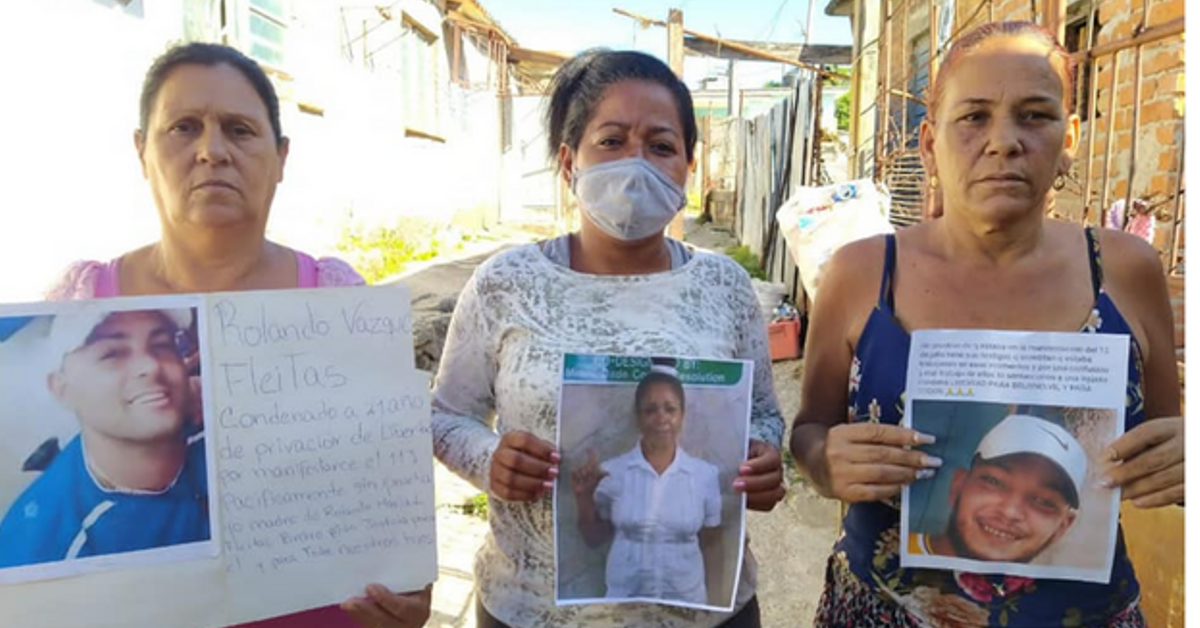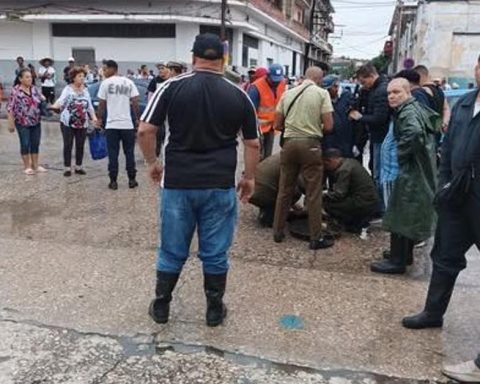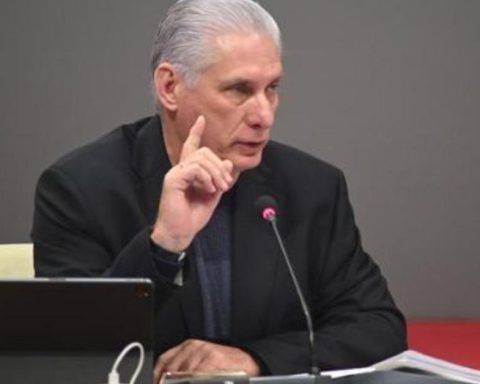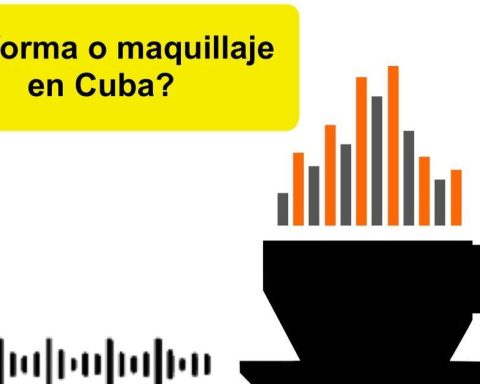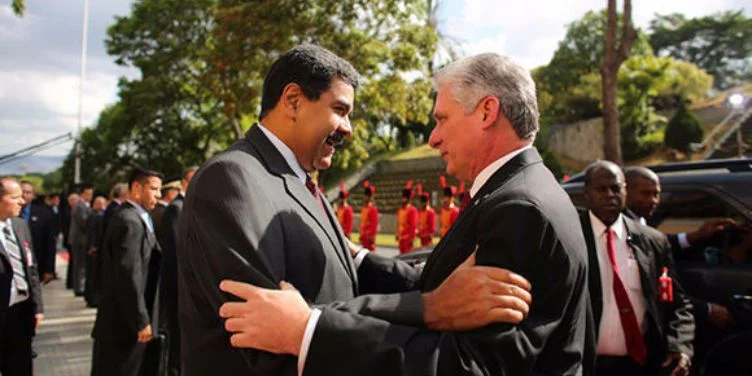Madrid/All eyes are on who will be the 553 prisoners on the Island who will benefit from the agreement of the Cuban regime with the Vatican to obtain, in exchange, the removal of Cuba from the list of countries sponsoring terrorism dictated by the president of the United States, Joe Biden. There is no clue about their names for now, but there is also no clue about another no less important issue: the conditions under which they will be released from prison.
The organization Prisoners Defenders (PD) warns that the ambiguous vocabulary of the Ministry of Foreign Affairs invites fear that there will not be releases, but releases, two words that appear used as synonyms in the government statement, without being so. “If this were confirmed, the news would not be as positive as the Cuban regime wants to make it seem. Releasing, in Cuba, is not liberating. In that case, some would obtain conditional release, others perhaps extra-penal licenses, and others a series of punishment subsidies, including forced labor without confinement,” says a text released by the NGO after hearing the news.
PD celebrates, in any case, the future release of these inmates, but remembers that this December alone there were 16 new political prisoners, as well as 58 in the last quarter, for a total of 1,801 since July 1, 2021, 880 in this moment. “A total of 1,219 political prisoners have been on the list in the last 12 months, all of them tortured,” underlines the document, which also regrets that, even in the impossible case that all the beneficiaries of the agreement were imprisoned for political reasons, politicians, hundreds of people would remain behind bars, imprisoned just for expressing their opinion or demonstrating.
“A total of 1,219 political prisoners have been on the list in the last 12 months, all of them tortured”
Precisely, hours before the agreements were made public, a new and severe sentence had emerged for two young Cubans who received four and five years in prison respectively for calling online for a protest against the Government that did not even take place, but that the court of Santiago de Cuba considered a crime of “propaganda against the constitutional order.”
Felix Daniel Pérez Ruiz received the greatest penalty for a post on the social network Facebook in which he said – with “rude words”, the sentence indicates – that he was “fed up” with the Government and called for a “demonstration against the Cuban political system.” Cristhian De Jesús Peña Aguilera shared his friend’s summons on social media and will now have to serve four years in prison, while two others investigated for it were acquitted.
The sentence was condemned by the Cuban Observatory of Human Rights, which highlighted that the regime is “on the hunt for any dissent.” Its executive director, Alejandro González Raga, who was banished to Spain in 2008 after almost five years in prison, has called for all political prisoners to be “released immediately, without conditions of any kind and without the obligation to leave the country.” .
Justice 11J also reacted to the announcement of their releases with fear, wondering if they will be forced to leave the country, as happened with the majority of those belonging to the group of 75, imprisoned during the Black Spring. In that case, also mediated by the Vatican and Spain, all those who agreed to leave Cuba in 2010 were released, and a year later those who refused.
“We denounce the inhumane practice of the Cuban regime of using the bodies and dignity of people to obtain political and economic concessions,” wrote the NGO, which recalled that the benefit achieved in exchange for Cuba’s removal from the US blacklist represents a “just relief for prisoners and families,” but it does not diminish “the repressive nature of the Cuban regime, which has often re-locked up dissidents who do not submit to them.”
“We denounce the inhumane practice of the Cuban regime of using the bodies and dignity of people to obtain political and economic concessions”
For its part, the Council for the Democratic Transition of Cuba celebrated the release of those who “should never have been in prison,” but regretted that the human rights agenda is being subordinated “to the foreign policy of the United States.” The group defends that there be a general amnesty and the “conflict” returns to its “main origin, that which exists between the Cuban Government and its society.”
The Cuban Institute for Freedom of Expression and Press (Iclep) also spoke out on the matter, categorically rejecting that the regime did not mention in the message announcing the releases the obvious link with the removal from the US blacklist. The NGO considers the regime’s speech an “insult in presenting the gradual release of 553 political prisoners as part of the just and humanitarian nature of Cuba’s penal and penitentiary systems, when thousands of families have been separated for the simple “Thinking differently and physical and psychological repression, lack of medical care and murders are common in prisons.”
Specifically about Biden’s decision, and on a personal basis, there is division among some well-known opponents of the regime. Guillermo holds radically opposite points of view Coconut Fariñas, who has described the measure as “betrayal of the Cuban people and the freedom of all the peoples of the world,” and Alina Barbara Lopezwho sees it as correct—if the releases do not translate into forced exiles—although incoherent. ”If there were no reasons to include it, why was it there? The sanctions have affected the entire Cuban society, not just those responsible,” he points out in a post of Facebook in which he also considers the suspension of Chapter III of the Helms-Burton Law to be positive, although it seems “inexplicable that those people and institutions directly responsible for repression against Cuban citizens are not sanctioned.”
“It is inexplicable that those people and institutions directly responsible for the repression of Cuban citizens are not sanctioned.”
The 11J prisoner Angélica Garrido, released in 2024 and with her sister Cristina still in prison, celebrated the possible releases “but they are negotiating them for something that the world knows, that Cuba not only sponsors terrorism, but that Cuba exercises state terrorism against his own people.”
Also Ángel Moya, a former prisoner of the Black Spring and, therefore, affected by a release similar to this one, left his opinion both on the announced releases and on Biden’s measure. “The communist regime of Cuba obtains a temporary certificate of good conduct with benefits included,” he points out in conclusion. The husband of the lady in white Berta Soler also made it clear that the regime has always “taken advantage of Cuban political prisoners by using them as bargaining chips and achieving benefits,” however, he adds: “except in the previous four years of Government of Trump, nor the embargo and any other measure to strengthen it, worked. And if they have ever worked it is half-hearted, there are plenty of examples.
The families of some of the prisoners who are most targeted, such as Luis Manuel Otero Alcántara, Maykel Osorbo Castillo, Felix and Saily Navarro or José Daniel Ferrer remain silent for now. Meanwhile, on social networks, a group of activists has launched a campaign to accompany the publication of the photograph of a political prisoner with the hashtag #everyone to promote that no political prisoners remain in Cuban prisons.
